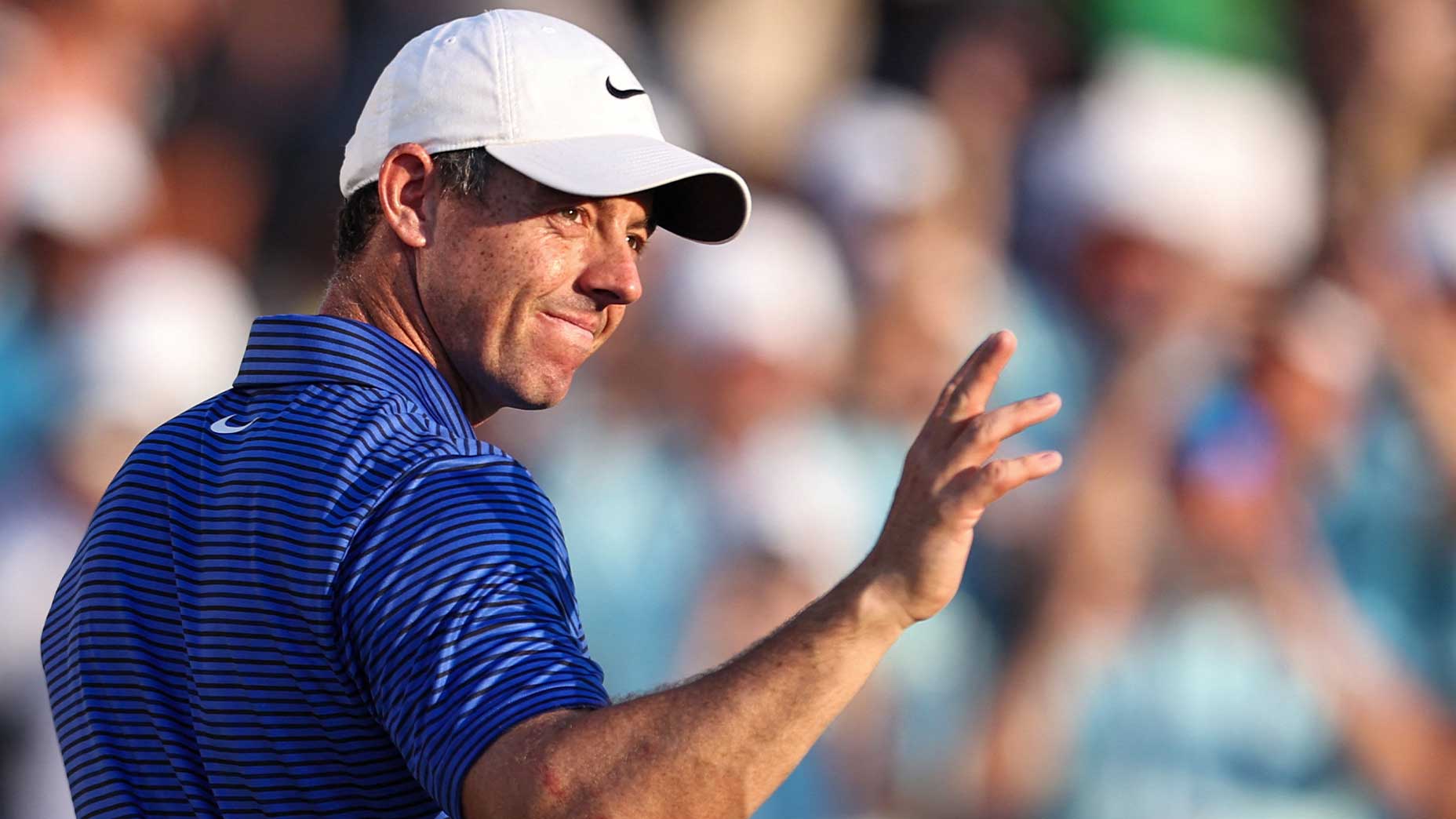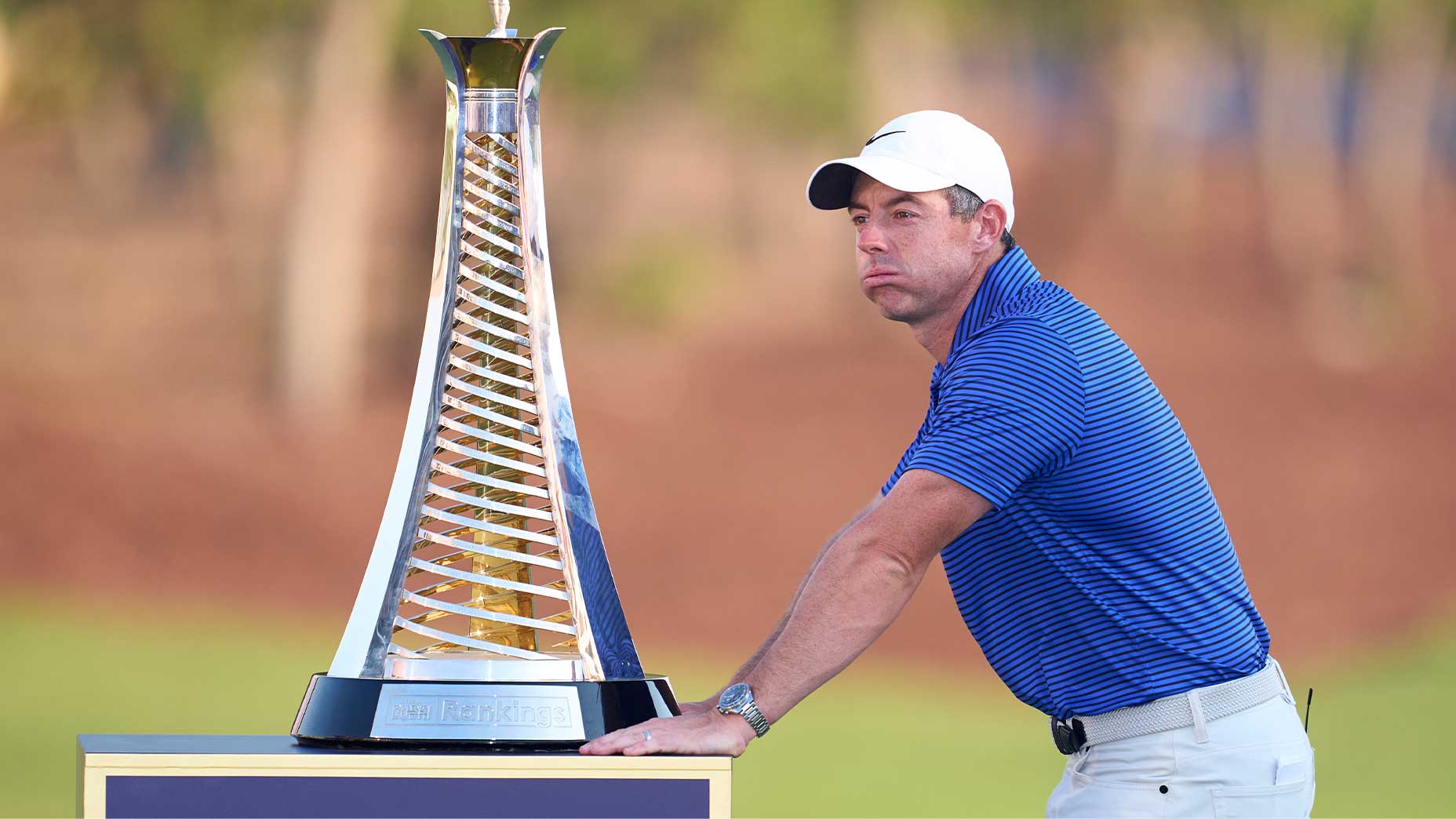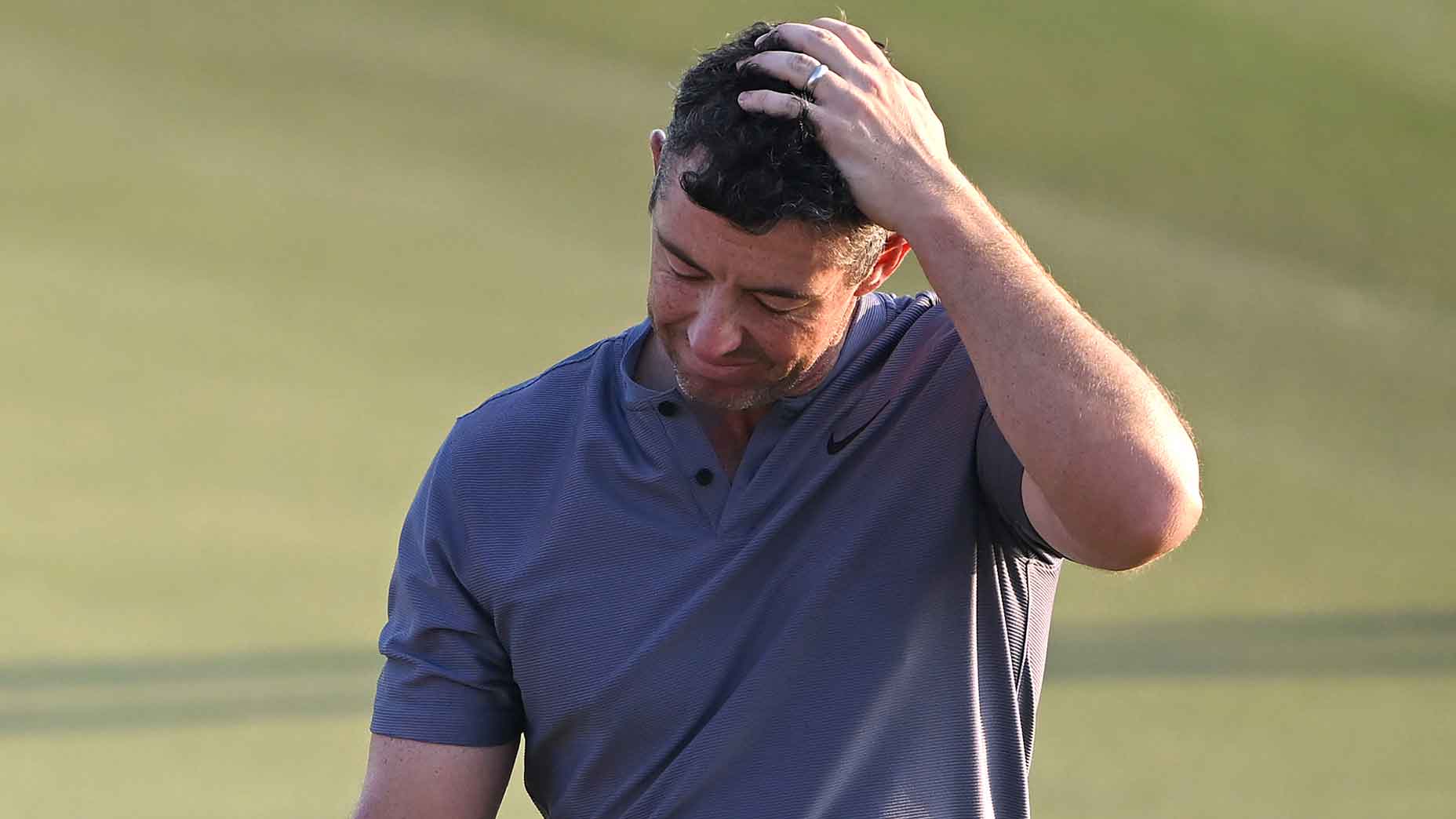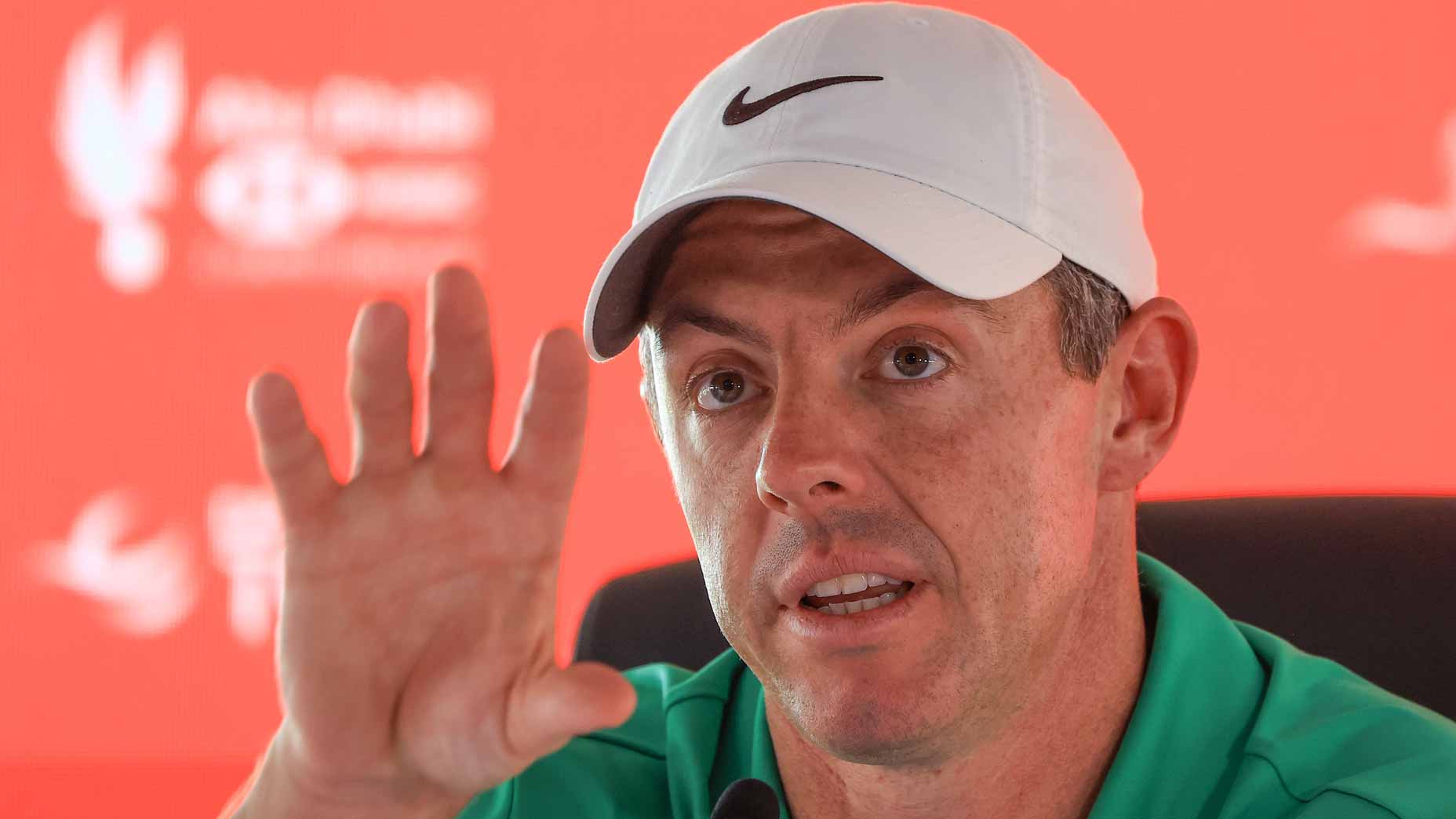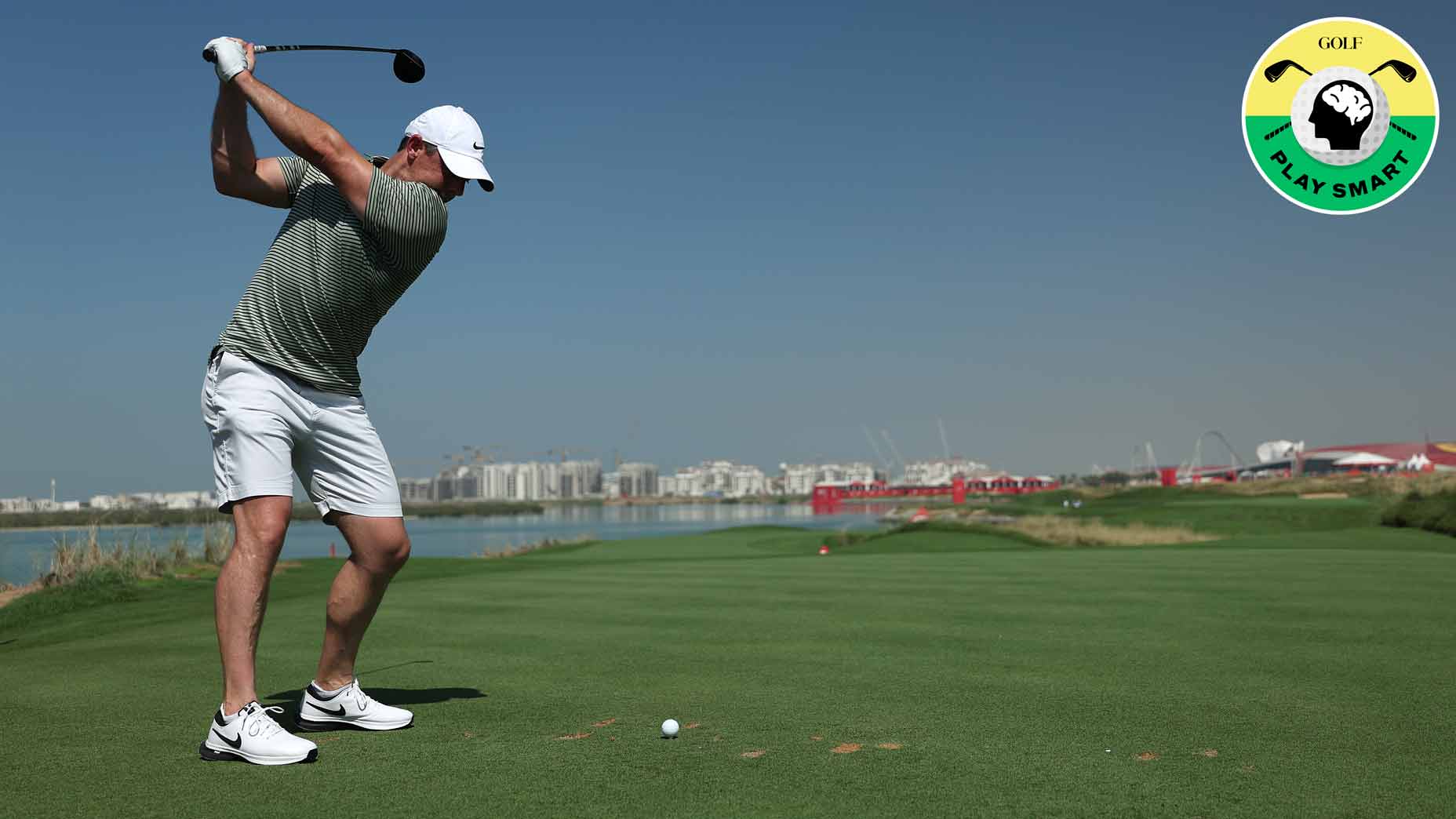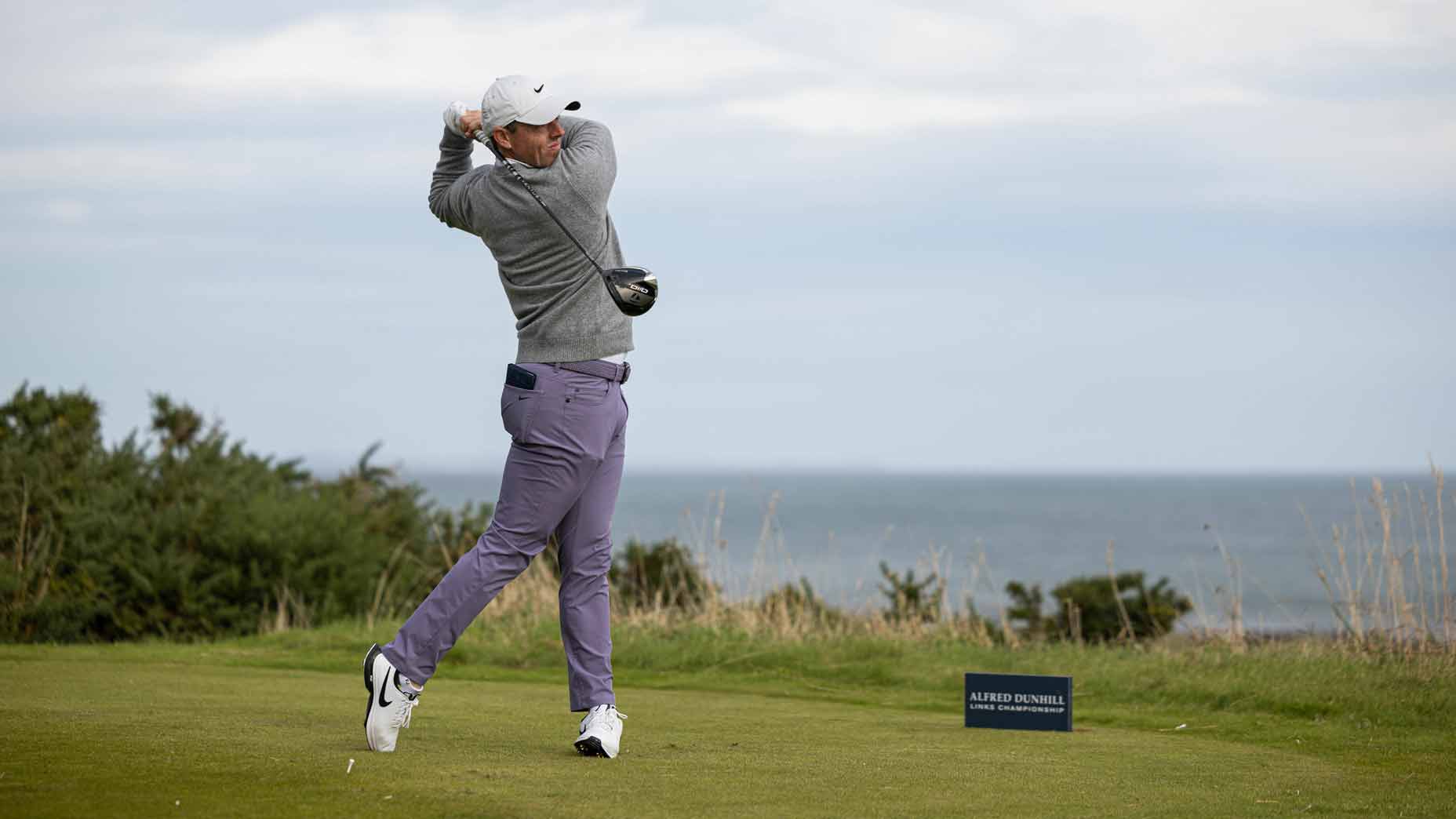How does Rory McIlroy fit in golf leadership? It’s a hot debate
- Share on Facebook
- Share on Twitter
- Share by Email

Rory McIlroy watches a tee shot during the Zurich Classic in April.
Getty Images
In any other year in the history of pro golf, it may have been simple to slide Rory McIlroy back into a leadership position on the PGA Tour, but this is not just any old year. It’s 2024, where the PGA Tour has created its own, for-profit company. Where it accepted $1.5 billion from some of the biggest sports investors in the world. Where other, untold billions are, in theory at least, on the table via Saudi Arabia.
Unfortunately for McIlroy, a man who wants to meet the gravity of all that listed above, he will not have a clearly defined seat on the PGA Tour Policy Board. (At least not yet.)
Two weeks ago, the Guardian’s Ewen Murray reported Webb Simpson tendered his resignation from the board and requested McIlroy, who resigned from the policy board just five months ago, fill his spot. But on Wednesday, as the PGA Tour readies for a Signature Event at Quail Hollow, we learned there’d been a hiccup since. Although Simpson, one of six player directors, had deemed McIlroy his exclusive choice to replace him, that’s not necessarily how things work. At least not during the most tense years of the board’s existence.
“It got pretty complicated and pretty messy,” McIlroy said Wednesday at the Wells Fargo Championship. “I think with the way it happened, it opened up some old wounds and scar tissue from things that have happened before.
“There was a subset of people on the board that were maybe uncomfortable with me coming back on, for some reason.”
McIlroy didn’t name names, but it is no secret that he and a few board members have had their disagreements in the last year. It was just three months ago that McIlroy had an hour-long phone call with Jordan Spieth in response to dismissive comments Spieth made regarding the need for a deal with the Saudi PIF.
McIlroy and Patrick Cantlay have also been at odds at times. And not just during the 18th-hole melee at the Ryder Cup in Rome. McIlroy admitted in an interview in December that his relationship with Cantlay is “average at best,” and that “we don’t have a ton in common and see the world quite differently.”
That could be part of what McIlroy was up against when he raised his hand to take Simpson’s spot. When McIlroy gave up his own seat on the board, late last year, it was the other player directors who agreed unanimously to give that position to Spieth. Anything less than unanimous agreement is an issue, considering the player directors, for the first time, have been signing letters to the membership as a group. Nothing is happening on the policy board without consent from every player director.
The issue is that the board isn’t exactly advancing the Tour (at least publicly) toward a more stable future with any sort of pace. Most player directors have been coy about the negotiations. Tour commissioner Jay Monahan was particularly vague when he addressed the media in his annual state-of-the-union press conference. Meanwhile, the Tour’s television audience has regularly dipped at most tournaments this year, inclusive of the year’s first major, the Masters. Fans are unquestionably fatigued, and many PGA Tour members are as well. McIlroy is unafraid to voice his opinions and attach his name to them, which puts him on a pretty short list among the game’s elite. But not everyone in the Tour membership agrees with those opinions, so not everyone agrees with the idea of McIlroy getting his spot back on the board.
We do know one thing, though — he has Simpson’s endorsement, even if he won’t have his board seat. Simpson said he now intends to continue forward through the remaining 20 months of his term and will clearly work to keep McIlroy closely involved. He just couldn’t explain the position of McIlroy very coherently Wednesday morning.
“I think the sentiment was Rory McIlroy, being the global superstar that he is and the strong voice that he has in the game of golf, it would be great to get him involved more,” Simpson said. “So, you know, what capacity is he going to get involved more? I think three weeks ago we just wanted him more involved, and I think I’ve seen support from the guys on wanting him more involved and helping. All he has said to me is I just want to help if you guys want me to help. So we’re thankful that he wants to help. He has, like I said, an important voice and I think he’s already made a positive impact the last week in his role.”
Those last two words are telling, even if they aren’t detailed. His role. Simpson did not explain what “his role” means for McIlroy, but it would appear to be some form of an advisor. Perhaps adjacent to various committees in charge of making progress toward reunification. McIlroy understands the structures of the business, is tight with the SSG investment group, has very close ties to the DP World Tour — McIlroy is in the process of moving to London — and believes the highest ceiling of pro golf involves the best players in the world playing a lot of golf in America, but also leaving those comforts of home and bringing the Tour abroad more often. That was the first thing that came to mind Wednesday, when McIlroy was asked for potential compromises the Tour may have to make to reach an investment deal with the Saudi PIF and reunite with players on LIV Golf.
When asked what compromises the Tour may have to make for a deal, it’s telling how QUICKLY this idea comes to McIlroy AND how smoothly he says it. It’s been top of his mind for months:
— Sean Zak (@Sean_Zak) May 8, 2024
American golfers playing all their golf in America may have to play more golf across the rest… pic.twitter.com/friYwYWYBn
“If we go to more of a global schedule,” McIlroy began, “do the American players that are used to playing all their golf in America want to travel outside of the States 12 times a year to play tournament golf, you know? That’s a consideration.”
And one McIlroy has been talking about for months. You can hear it in how smoothly he utters those words. He’s said them before, many times, not necessarily in front of a microphone. It’s his view of golf’s greatest future, but one he knows may never actually happen. Which is why he considers now to be a moment of opportunity that may pass. Due to resigning his board seat last year, McIlroy is in less of a position to make it happen, but the last few weeks make it seem he is in more of a position than he was two months ago.
“His perspective is tremendous to us,” Simpson said. “He’s a global player, always has been, so I just think his views are important, and the other guys feel the same.
“We kind of had to figure out, OK, where is his place — how can we honor our role as board members and our commitment to the Tour, but also bring in a guy at least to voice his ideas and just see how he can help us.”
Latest In News
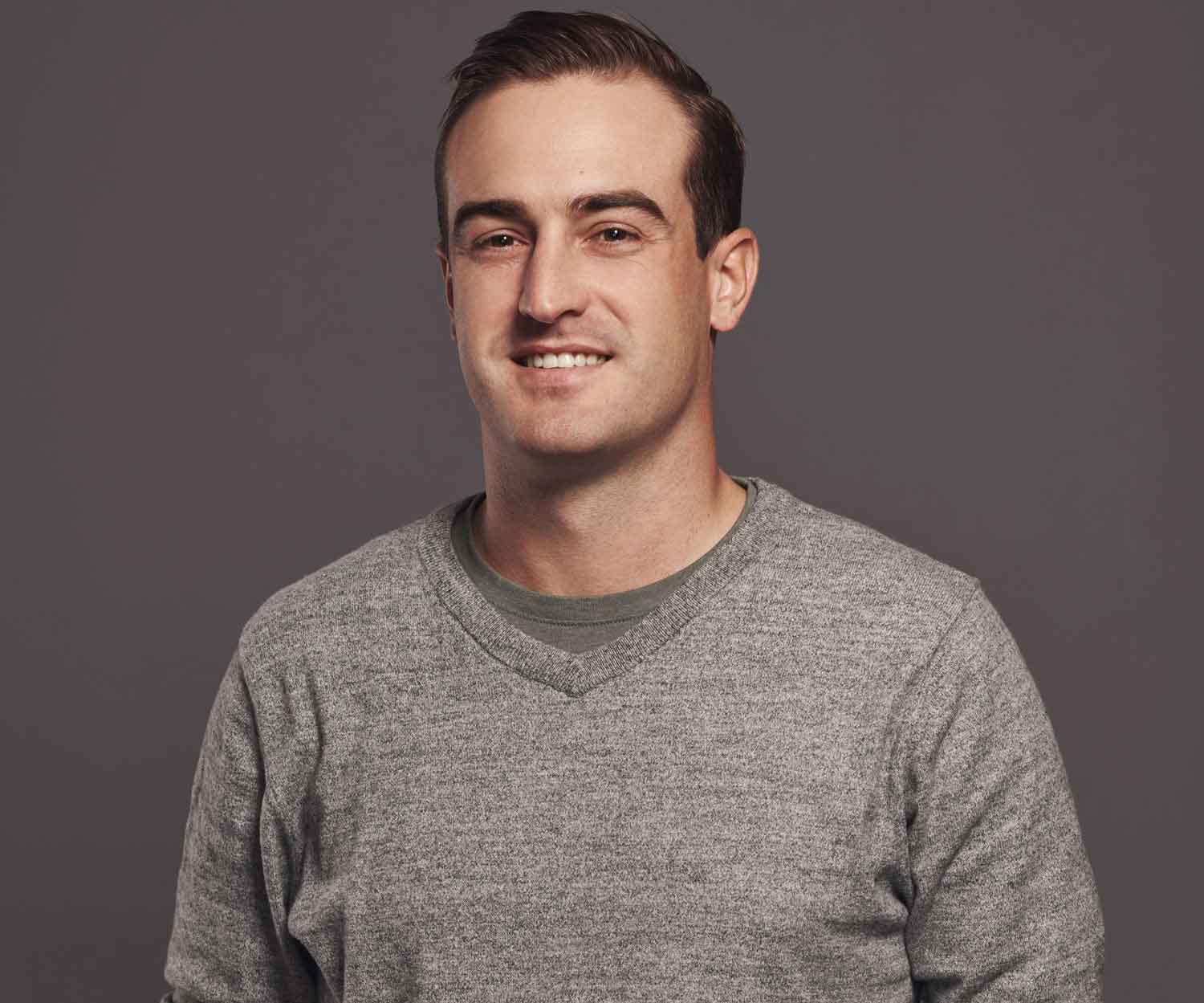
Sean Zak
Golf.com Editor
Sean Zak is a writer at GOLF Magazine and just published his first book, which follows his travels in Scotland during the most pivotal summer in the game’s history.

